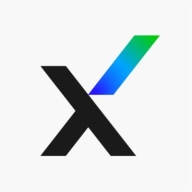

LogPoint and Trellix Helix Connect compete in the SIEM and SOAR solutions category. Trellix Helix Connect appears to have the upper hand due to its strong automation capabilities and integration potential.
Features: LogPoint is known for its robust logging capabilities, flexible search functions, and user-friendly integration. The solution's cost-effectiveness and its dual SIEM and SOAR offering in one solution also highlight its strengths. Trellix Helix Connect stands out with its automation, threat intelligence correlation, and integration capabilities, supporting over 400 connectors. Its quick implementation and AI features further enhance its appeal for sophisticated security operations.
Room for Improvement: LogPoint could benefit from improving its documentation, integrating better with third-party solutions, and enhancing its UI for better user experience and customization. It's also noted that LogPoint needs advanced cloud-native features. Trellix Helix Connect requires improvements in customer service, reducing false positives, and enhancing dashboard features. Pricing and support response times are also areas of concern for Trellix Helix users.
Ease of Deployment and Customer Service: LogPoint is mainly deployed on-premises and faces challenges regarding customer service response times and technical support quality. Limited local support in the US affects user experience. Trellix Helix Connect shows greater deployment flexibility, available in public, private, and hybrid clouds, though users report issues with technical support and customer service delays. However, they find the initial deployment straightforward.
Pricing and ROI: LogPoint offers a fixed pricing model appreciated for its predictability and cost-effectiveness, generally mid-ranged with available discounts. This steady pricing supports ROI by facilitating compliance and security monitoring. Trellix Helix Connect is viewed as costlier, oriented towards larger enterprises, requiring third-party log licensing. Its comprehensive capabilities contribute to its higher perceived cost, yet users recognize ROI benefits in terms of reducing incident response times.
I have seen measurable return on investment through indicators such as mean time to detect and mean time to contain, reducing correlation and validation through automation.
We have seen a return on investment with Trellix Helix Connect, and we can share relevant metrics as we reduce the MTTD and MTTR and have KPIs indicating our ROI.
Logpoint's customer support is not sufficient with only one engineer in the US.
The technical support for Logpoint is very good, and I would rate it as nine out of ten.
I recommend a submission to Logpoint because I worked with it before.
The customer support for Trellix Helix Connect is well in Latin America because there are many people in the region, which enhances the experience.
We experienced some challenges due to the ongoing transformation and fusion of McAfee and FireEye, but we are committed to improving response times.
The partner support is good and I do not have problems.
It is web-based and accommodates the expansion of our organization.
Logpoint is scalable and capable of expanding.
We support the largest companies in the world and can cater to large environments.
Trellix Helix Connect's scalability is excellent as the solution has a library to make integrations with other brands.
Trellix Helix Connect scales well as my organization grows, provided it is architected correctly from the beginning.
I have received reports indicating glitches and downtimes with Logpoint.
Trellix Helix Connect is very stable, and I have experienced almost no downtime or issues.
The availability is high, which is critical for our customers who rely on a single panel of glass to operate.
Dealing with foreign entities for support was a challenge, leading us to switch providers due to lack of adequate support.
Logpoint's UEBA is a weak point, while Exabeam's UEBA has extra AI through automation.
Logpoint needs to be cloud-native, as currently, it is not.
We have just released the solutions to the market recently, making it a revolution in the cybersecurity sector.
The usability of hyperautomation is something to improve in the solution because it is expensive regarding the needed improvements.
Trellix Helix Connect could improve in design and perhaps strengthen native cloud and SaaS telemetry integration.
I rate the pricing at eight, suggesting it's relatively good or affordable.
It is not the cheapest, but also not the most expensive solution.
The UEBA enables us to monitor at the device level, and SOAR provides playbooks and templates that we can modify and incorporate into the platform.
Exabeam's advantage is its AI-driven network AI; this AI feature is available, and Exabeam is powerful.
It effectively facilitates logging and log storage and assists in security event management by ingesting security events.
Trellix Helix Connect has made a significant impact on my organization because I can reduce mean time to contain, improve alert quality, standardize incident handling with playbook enforcement, and provide stronger executive reporting on Helix incident metrics improving MTDD and MTTC tracking as well as internal risk posture reporting.
Trellix Helix, as an AI XDR platform, helps our organization by offering an extensive number of connectors for integration, enabling us to consolidate all information in a single dashboard.
| Product | Market Share (%) |
|---|---|
| Trellix Helix Connect | 1.1% |
| Logpoint | 1.0% |
| Other | 97.9% |


| Company Size | Count |
|---|---|
| Small Business | 18 |
| Midsize Enterprise | 3 |
| Large Enterprise | 4 |
| Company Size | Count |
|---|---|
| Small Business | 6 |
| Midsize Enterprise | 1 |
| Large Enterprise | 7 |
Logpoint is a cutting-edge security information and event management (SIEM) solution that is designed to be intuitive and flexible enough to be used by an array of different businesses. It is capable of expanding according to its users' needs.
Benefits of Logpoint
Some of the benefits of using Logpoint include:
Reviews from Real Users
Logpoint is a security and management solution that stands out among its competitors for a number of reasons. Two major ones are its data gathering and artificial intelligence (AI) capabilities. Logpoint enables users to not only gather the data, but also to maximize both the amount of data that can be gathered and its usefulness. It removes many of the challenges that users may face in data collection. The solution allows users to set rules for collection and then it pulls information from sources that meet the rules that have been set. This data is then broken into manageable segments and ordered. Users can then analyze these ordered segments with ease. Additionally, LogPoint utilizes both machine learning and AI technology. Users gain the ability to protect themselves from and if necessary resolve emerging threats as soon as they arise. The AI sets security parameters for a user’s system. These act as a baseline that are triggered and notify the user if anything deviates from the rules that it set up.
The chief infrastructure & security officer at a financial services firm writes, “It is a very comprehensive solution for gathering data. It has got a lot of capabilities for collecting logs from different systems. Logs are notoriously difficult to collect because they come in all formats. Logpoint has a very sophisticated mechanism for you to be able to connect to or listen to a system, get the data, and parse it. Logs come in text formats that are not easily parsed because all logs are not the same, but with Logpoint, you can define a policy for collecting the data. You can create a parser very quickly to get the logs into a structured mechanism so that you can analyze them.”
A. Secca., a Cyber Security Analyst at a transportation company, writes, “It is an AI technology because it is using machine learning technology. So far, there is nothing better out there for UEBA in terms of monitoring endpoints and user activity. It is using machine learning language, so it is right at the top. It provides that capability and monitors all of the user’s activities. It devises a baseline and monitors if there is any deviation from the baseline.”
Trellix Helix Connect is known for its seamless API integration, automation capabilities, and efficient data correlation. It offers robust solutions in email threat prevention and malware detection, catering to cybersecurity needs with a user-friendly query language and extensive connector support.
Trellix Helix Connect integrates incident response, centralized SIEM tasks, and data correlation using native support for FireEye products. It rapidly handles alerts, enhances ticket management, and prevents network attacks. Its XDR platform supports a wide range of environments, providing DDI and IOC feeds for comprehensive data, email, and endpoint security. Users appreciate the deployment and API integration, but improvements in graphical interface and pricing could increase satisfaction. Additional infrastructure enhancements and optimized support can address current challenges resulting from recent mergers.
What are the key features of Trellix Helix Connect?Enterprises utilize Trellix Helix Connect for its ability to manage managed detection and response services, logging, and ransomware/ phishing mitigation. It operates efficiently in restrictive environments, enabling cybersecurity functions in industries requiring robust data, email, and endpoint security strategies.
We monitor all Security Information and Event Management (SIEM) reviews to prevent fraudulent reviews and keep review quality high. We do not post reviews by company employees or direct competitors. We validate each review for authenticity via cross-reference with LinkedIn, and personal follow-up with the reviewer when necessary.